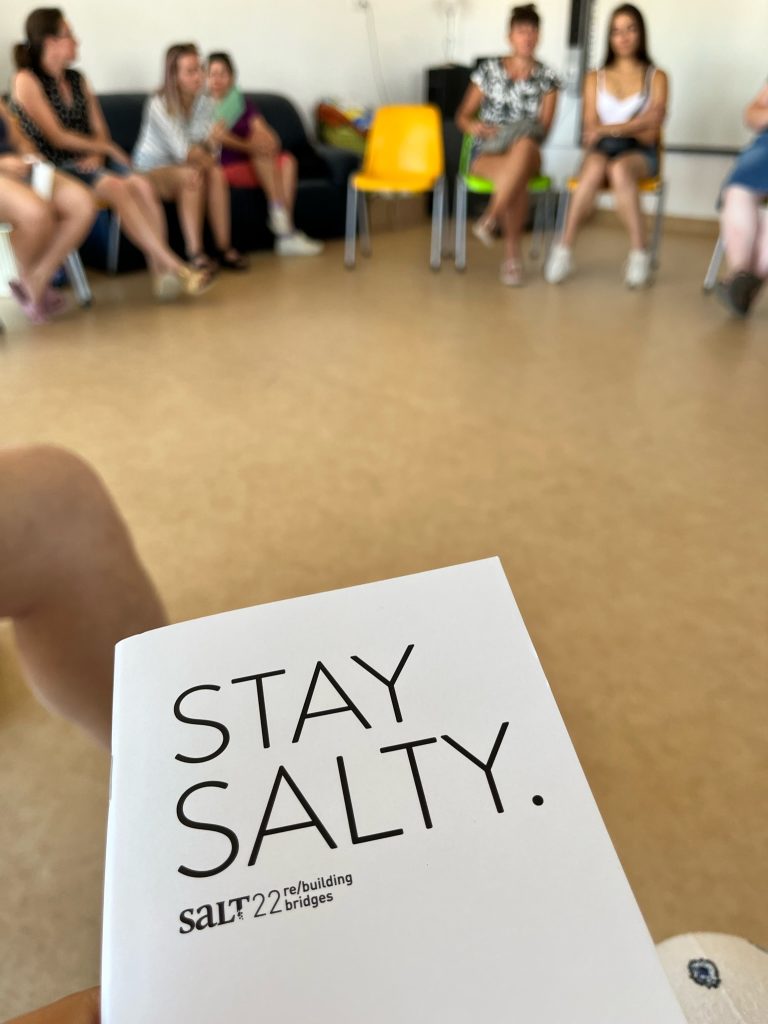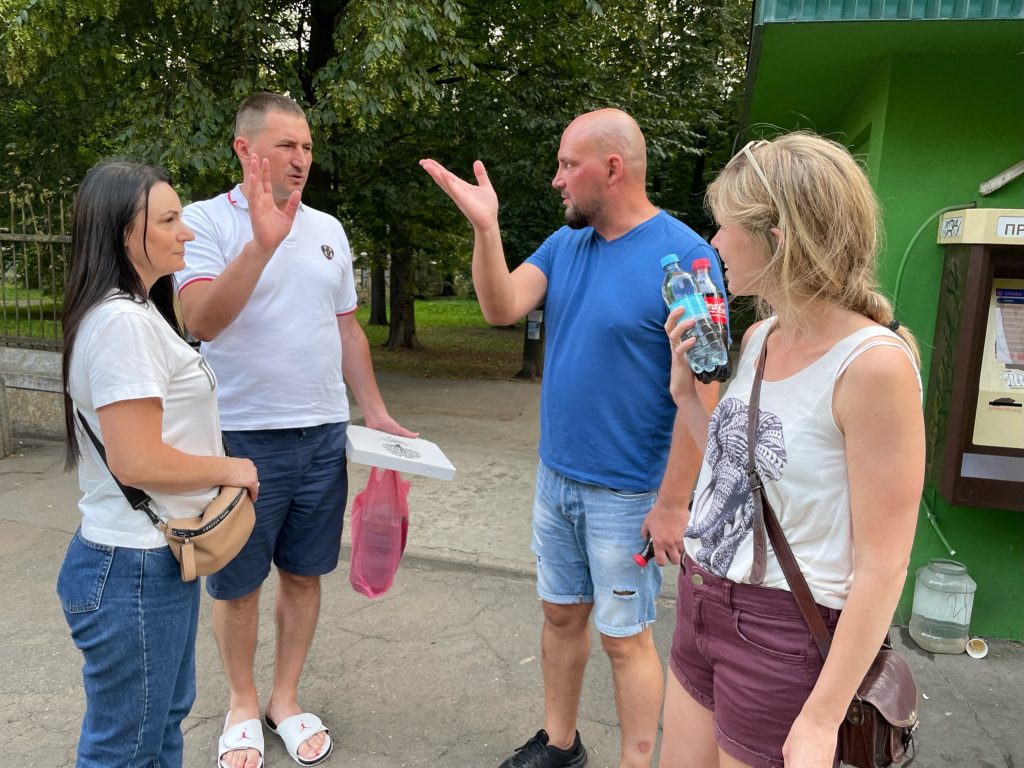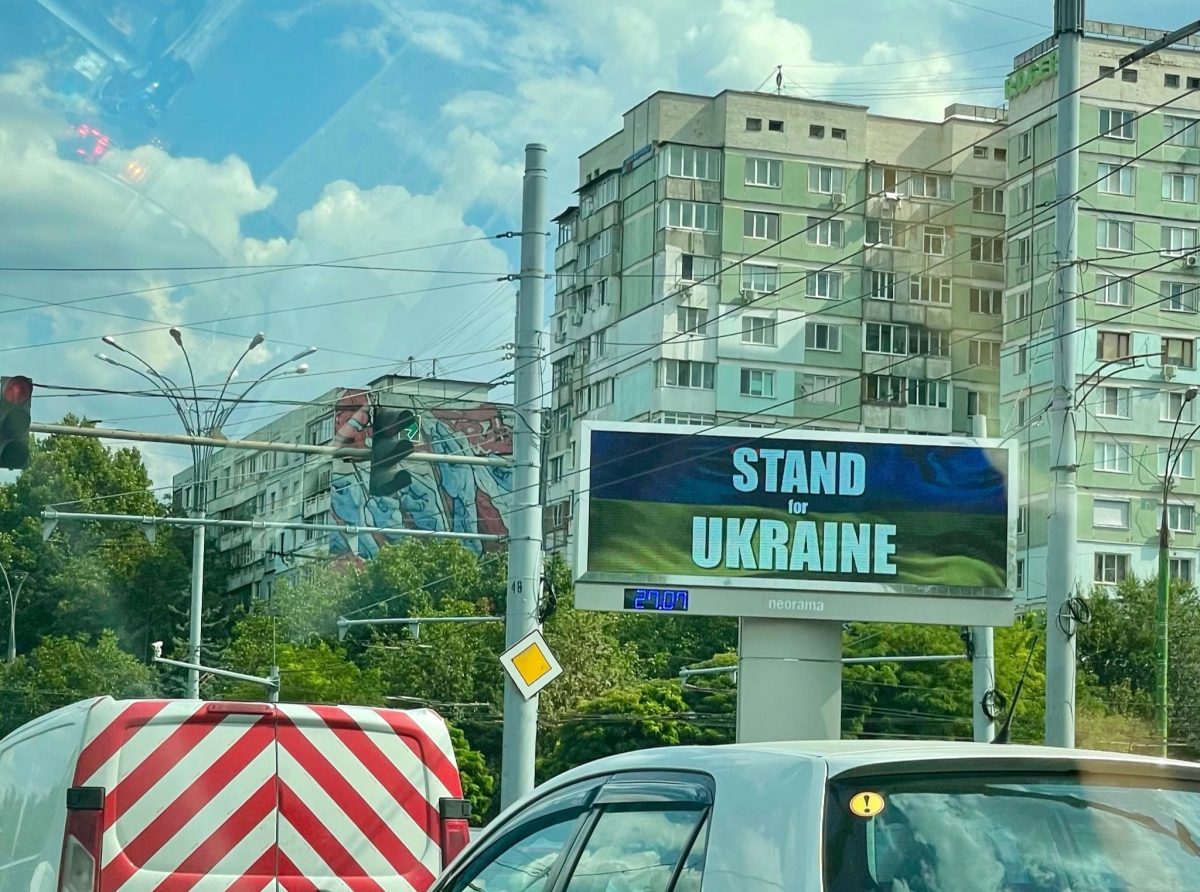The tension was high in the room. We sat rigidly in our seats, expectant and nervous. The young women, all mothers who had fled with their children from the war in their country, were watching us, skepticism and distrust emanating from their eyes. We knew we are not welcome.
This was the setting we found ourselves in on our third day of SALT, Sustainable Actions for Leadership and Truth, an initiative for leadership and reconciliation. We launched this, together with our good friend and mentor, Tihomir Kukolja, to address the issues of hatred, polarisation, conflict and division in our region.
For two weeks, we travelled to different towns and cities in Romania, as well as to Ukraine and Moldova, to meet our Ukrainian neighbours who’ve fled from the war that is being waged on their country, and front-line workers who’ve been continuously supporting them. Our focus was on understanding their situation and their needs, creating safe spaces for them to process and reflect on the challenging issues that they, and we all, are facing as a consequence of this war, and shaping inclusive communities where we can find and give support. This happened through a vast range of activities, from teaching, equipping and addressing complex issues in smaller seminar-settings, to serving lunch at a local kitchen that has been set up for the purpose of feeding Ukrainian refugees, to listening to stories – countless, gut-wrenching but also heartwarming stories – to visiting, learning from and encouraging some of the local heroes who’ve been working without fail since the beginning of the war. It was two intense weeks, and we have more stories than we can share in one single update. For now, we would like to tell you the story about the young women, the mothers, who didn’t want to welcome us.
When we arrived, the hostility in the air was tangible, and one lady asked loudly, scornfully, “so, these are the psychologists?”.
We woke up at the crack of dawn and drove for three hours. Just as we were about to arrive at our destination, we were informed that there was a bit of a tension in the group we were going to meet. The previous day, the women had received a couple of visitors who had spoken to them, in Russian, about Jesus. The women had gotten very angry, stating that “Jesus” and the Russian language cannot go together, and they had walked out of the room. Just to make it clear, the visitors were not from Russia, and they had good intentions, but the damage was already done.
When we arrived, the hostility in the air was tangible, and one lady asked loudly, scornfully, “so, these are the psychologists?”. You can probably imagine how we felt.

Sitting in a circle, all eyes on us, we started speaking – not at them, but with them. We told them about ourselves, we shared our experiences, and we listened to their stories. As we exposed our vulnerable selves, the walls came crumbling down, and a new sense of community – a gathering of equals – emerged. We spoke about trauma, pain, fear and suffering. We spoke about friendship, hospitality, love and courage. We encouraged them to shape communities and hold safe spaces for themselves and each other. Most importantly, we listened. And while their laughter turned to tears, as they walked out and came back in again, as their jokes turned into painful remembrance, we held that sacred space for them, making sure it was safe. At the end of the day, we departed as friends.
If you want to hear more stories and live action from our SALT journey, check out this video, expertly put together by Tihomir Kukolja.
If we learned anything, it is the importance of communities and holding each other in safe spaces, telling each other that, in the midst of pain and suffering, we are not alone.
People who flee from the horrors of war need more than just sandwiches and a roof over their heads. We have come to the stage now, 217 days into the war, that what people need the most is psychological and social support. Yes, we need trauma care experts and psychotherapists to step up to this challenge, but that doesn’t mean the rest of us cannot – or should not – also do something. If we learned anything, it is the importance of communities and holding each other in safe spaces, telling each other that, in the midst of pain and suffering, we are not alone.
The majority of our work now with our Ukrainian neighbours is not extracting people from active war zones (although that does still happen occasionally), but providing psycho-social support as much as we can. We drop by to check on them to make sure they’re ok. We take them out for a coffee or a meal and talk about everything and anything. We host informal meetings where they can come together, we facilitate dialogue and the sharing of experiences – not just for our Ukrainian friends, but also for the front-line workers, many of whom are completely exhausted, mentally and emotionally drained, from their ceaseless efforts.

As far as we can tell, the end is not near, not even within sight. We do not know how long the war will continue, but we do know that the restoration and rebuilding – of lives, homes, communities – will be a long and difficult process, which will require much more from us than we are able to understand right now. We want you to know that even if you are far away, you are part of this incredibly important work. When you read the devastating news about the war, we want you to remember that you’re part of the solution. You’re the ones who enable us, equip us and empower us to continue on this journey. Even when it’s hard, we know we are not alone. For that, you have our eternal gratitude.

